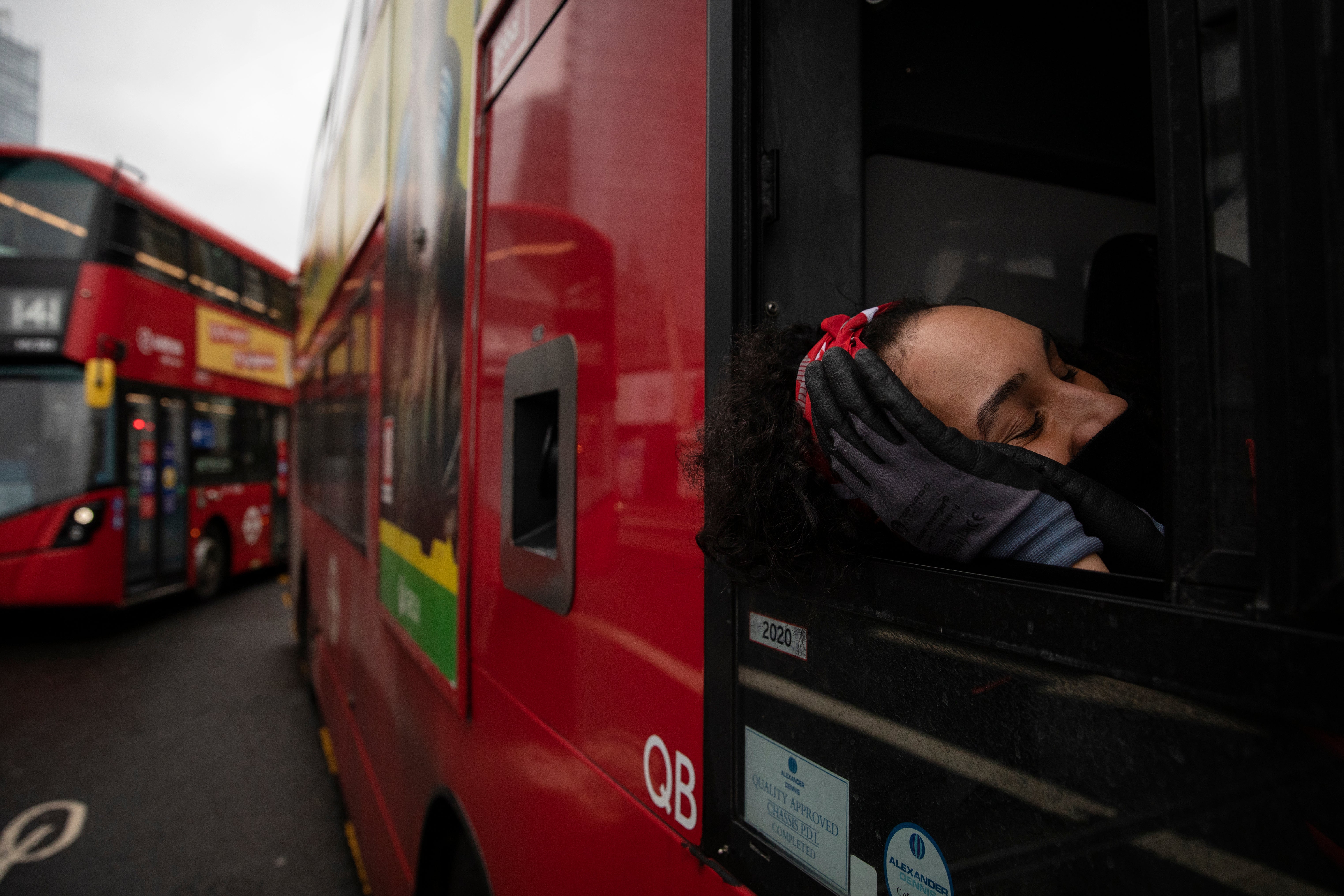UK faces bus driver shortage as staff ‘leaving in droves’ for better-paid HGV jobs
Services across Derby, Stockton-on-Tees, Nottingham and Loughborough among those affected

Bus drivers are leaving their jobs “in droves” for better-paid HGV jobs and have left some providers with no option but to cancel services, a union has said.
The Confederation of Passenger Transport UK (CPT) has estimated there are over 4,000 vacancies for bus and coach drivers across the country at present.
Services in Derby, Stockton-on-Tees, Nottingham and Loughborough are among those affected by the driver shortages.
A spokesperson for the CPT told Sky News: “Operators have recruitment plans in place, and we are talking to government and its agencies to ensure that the recruitment and training process is as streamlined and efficient as possible.
“What we now need to see is the requirement for a provisional licence to be issued to begin training abolished and the DVSA [Driver and Vehicle Standards Agency] to not prioritise HGV testing to resolve the shortfall in that sector at the expense of the bus and coach sector.”
In most cases, bus and lorry drivers renewing their licences can continue to drive while their application is being processed, the DVLA said.
A DVLA spokesperson said: “There are no delays for bus and HGV provisional licence applications which are currently being issued in around five days – we are prioritising these applications and looking at ways to speed up this process even further.”
Bobby Morton, Unite’s national officer for passenger transport, told Sky News the sudden shortfall of drivers comes back to the shortage of lorry drivers in the haulage industry.
He said that drivers are facing the choice of getting behind the wheel of a lorry for £20 an hour or a bus for £10 an hour.
He said: “A number of the things that lorry drivers share with bus drivers is very long hours, massive fatigue levels, lack of basic facilities such as toilet facilities and washing facilities.
“And the mindset of the bus drivers at the moment is that, in the haulage industry, the employers threw money at the problem, at the shortage.
“So the mindset is now, if we’ve got to work in these Victorian conditions, then we might as well get £20 an hour driving the lorry, as opposed to £10 an hour driving a bus. So the bus drivers are leaving in droves to go to the other industry.”
It comes after bosses from the haulage, recruitment and food sectors warned ministers at the government’s Business, Energy and Industrial Strategy Committee that the UK’s lorry driver shortage is “not visibly getting better” and could take around a year to recover.
Figures revealed by the Office for National Statistics (ONS) earlier on Tuesday showed that driver numbers have plunged by 53,000 over the past four years, largely driven by retiring drivers not being replaced fast enough by new recruits.
Bus services running across the East Midlands have had to reduce the frequency of buses on a number of routes.
Routes through the Derby suburb of Allestree are among those impacted. Trentbarton, which operates the service across Derby, has 90 of its 900 driver posts vacant, a shortfall of 10 per cent.
The issue has arisen from some drivers retiring or relocating, as others have left to take on jobs as HGV drivers.
“At the moment, the transport and logistics sector are literally throwing money at drivers to plug their shortfalls,” Jeff Counsell, managing director of Trentbarton told Sky News. “The difference is that they can pass that cost on to the consumer – we can’t readily pass that cost on.
“We’ve not been allowed to increase fares for the last 18 months. We haven’t made a profit for the last 18 months because we’ve received a government subsidy.
“We can’t compete with the logistics and distribution sector at this moment in time.
“Other cost pressures are also going up – so fuel, for example, is costing us £100,000 more so far in 2021 than it did in 2020 because the price of fuel is escalating.”
The Department for Transport has been approached for comment.
Subscribe to Independent Premium to bookmark this article
Want to bookmark your favourite articles and stories to read or reference later? Start your Independent Premium subscription today.

Join our commenting forum
Join thought-provoking conversations, follow other Independent readers and see their replies